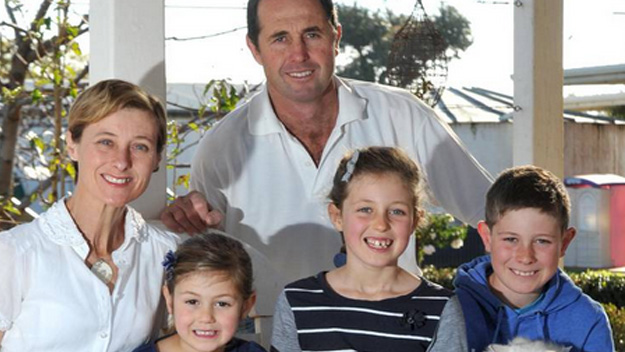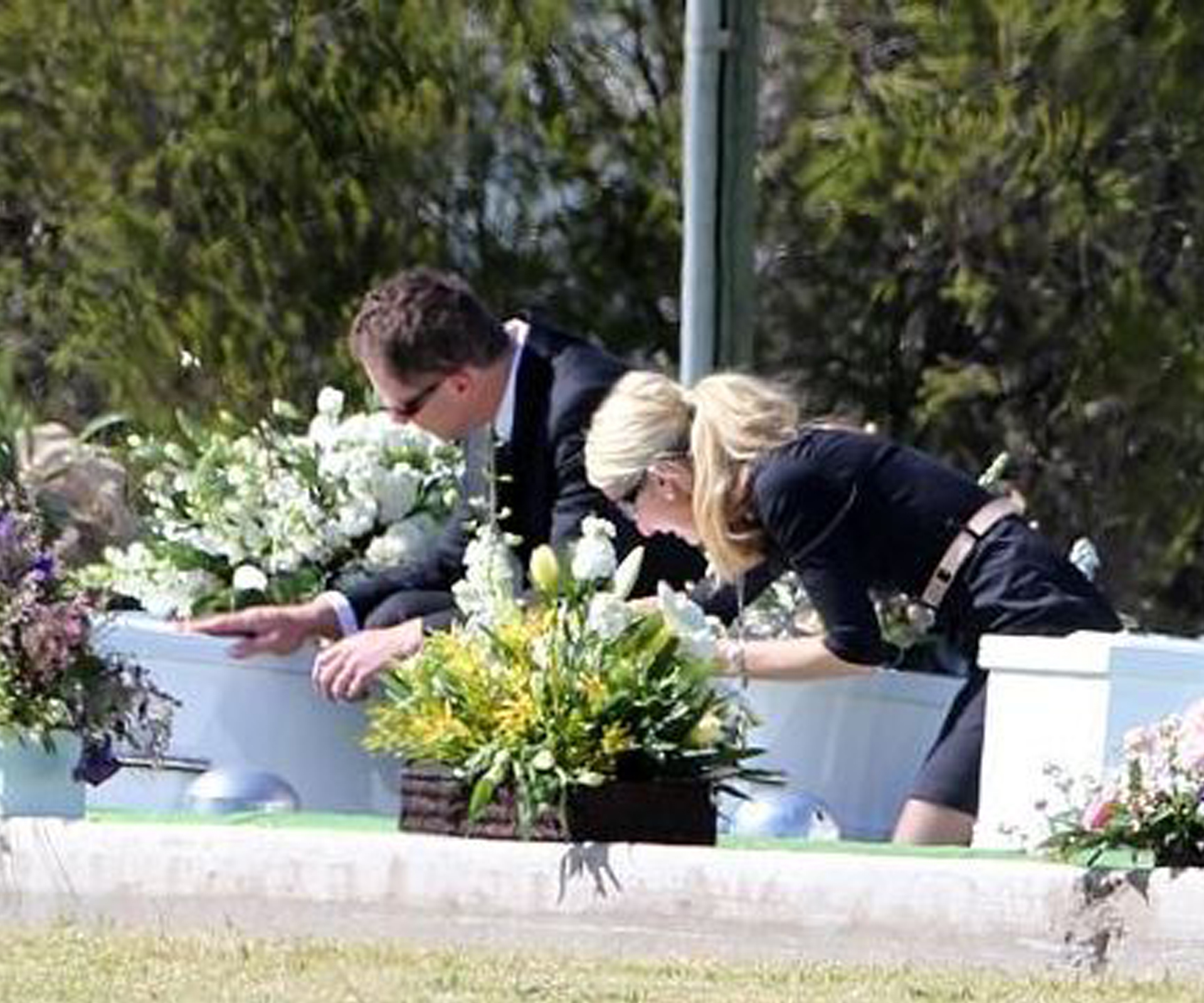On September 9 last year on a farm in New South Wales three children were found dead in their bedrooms.
Their mother was found lying on a garden path outside the house, with a single bullet would, and a jacket draped over her body.
The following afternoon their father was found by police divers in a dam nearby on their property in the small town of Lockhart – about 80 kilometres from Wagga Wagga. Nearby was a shotgun.
Evidence put forward to a coronial inquest into the deaths of the family this week suggests farmer Geoff Hunt, 44, gunned down his wife and then walked into their home to shoot his three children before taking his own life.
Was it premeditated or did he just snap? Were there complications in the marriage? Financial problems maybe? There’s an endless chain of questions. But the one question every person sitting in the Wagga Wagga courthouse this week wants the answer to, along with Coroner Michael Barnes, is this: what drives a man to kill his entire family?
When Robert Farquharson drove his three boys – Jai, Bailey and Tyler – off a straight road into a dam and pulled just himself from the sinking car as they drowned on Fathers Day in 2005 we asked the same question. And again on January 29 in 2009, when Arthur Freeman threw his four-year-old baby girl off the Westgate Bridge in Melbourne as his two sons watched, stuck in the car. And again when Greg Anderson brutally killed his son, Luke Batty, as the 11-year-old finished cricket training in country Victoria.
“What it can come down to is how an individual reacts to adversity, and the adversity might be that they lose their job and they can’t support their family like they used to. The adversity might be the illness of a family member. The adversity might be their wife leaving them,” says Forensic Psychologist, Dr. Lisa Warren, who is also a Director at Code Black Threat Management.
“But some people – and it’s so rare that it’s difficult to describe – are so shocked and taken aback by that they see it as such a dramatic circumstance that they believe that a dramatic action in return is fitting or warranted. And I think that shows the extent of the distortion in the thinking.”

Filicide (family homicide) can range from a parent killing one of their children, to all of their children, to their children and their partner, to their children, their partner and themselves.
Whether it’s maternal filicide or paternal filicide, Dr Warren says the crime can be broken down into two main types.
The first is called ‘spousal revenge filicide’ and is most commonly “the angry man who is aggrieved against his wife and he kills her either as a way to end the marriage – because he hates being in the marriage – or as revenge for her leaving”.
The second is called ‘altruistic filicide’, which is much less common and occurs when the man feels “helpless” and “like the world is a terrible place and their family is going to be much better off not in that world.”
According to the research men and women kill for different reasons. Women are more likely to commit altruistic filicide while men are more likely to commit spousal revenge filicide, (and also commit suicide after carrying out the murders) especially during a marriage breakdown.
Why?
“Because he loses everything,” says Dr Warren.
“We see a lot of men who do a lot of monitoring and financial coercion, so they literally control these women in multiple different ways. And when she gets up and leaves, he’s faced with a circumstance that all of a sudden he can’t control.”
While a history of domestic violence is common in a lot of cases, it’s not always a contributing factor. And in Geoff Hunt’s case, counsel assisting the coroner, Peggy Dwyer, says there is no evidence the farmer ever physically abused his wife, Kim Hunt, before that fatal day in September.
Mental illness – most commonly depression or a psychotic illnesses such as schitzophrenia – can play a part in driving someone to commit filicide, as well as substance abuse. The general state of mind of a person can also push them into eventually committing such a crime.
“There are some that just dig themselves into such a difficult mental space in terms of their own attitudes that they just can’t see any other way but very dramatic action,” says Dr. Warren.
“And killing your child is about as dramatic as it gets.”
Most filicide cases are premeditated, says Dr. Warren, with the cases of “snapping” quite uncommon.
When friends, family or people in the community claim they never saw it coming, Dr Warren says “in our opinion that’s not necessarily true.”
“More often than not there’s a range of warning factors that occur.
“The thing is it’s not a simple profile. So if you have depression, plus an alcohol abuse problem, plus recent unemployment, plus marital disharmony, plus a child with a behavioural problem, that’s going to test most people.”
In Geoff Hunt’s case, the Wagga Wagga courthouse has heard there were “no obvious financial or business stressors” on the couple, however, Kim Hunt was involved in a car accident in July 2012, leaving her with a severe brain injury that “resulted in a significant change in her personality”.
She would sometimes snap at her husband and at the worst of times, she expressed “suicidal ideation”.
And while some witnesses described Geoff Hunt as “exceptionally happy” others disagreed. Lorraine Bourke – a disability support worker who regularly visited the home – said the mood on September 8 was “very tense” and you could “cut the air with a knife”.
And whatever conclusion the coroner comes to this week, the troubling reality is that most people in town were shocked by the deaths.
They never saw it coming.
“It’s hard because all of those things are all things that people are very motivated to hide. We put on a brave face or a social face and it’s sort of a testament to that saying “you never know what goes on behind closed doors.”
And behind the doors of the farmhouse was a note on the table, written by Geoff Hunt.
It read: “I’m sorry. It’s all my fault. Totally mine.”
“The more we connect as a community, and we do look out for each other as best as we can, the better things will get. But at the end of the day, people make their own choices,” says Dr Warren.
“Each of these men made their own choices, and they made choices that were horrendously damaging to not just the people who died. It has a ripple effect.”
And the case of the Hunt family is no exception. Ms Dwyer told the inquest this week: “Each of these five deaths left a terrible gap in the lives of their family and friends.
“They are also confounded as to how this would happen to a loving, gifted family who had tried so hard to support each other in the lead up to this tragedy.”
